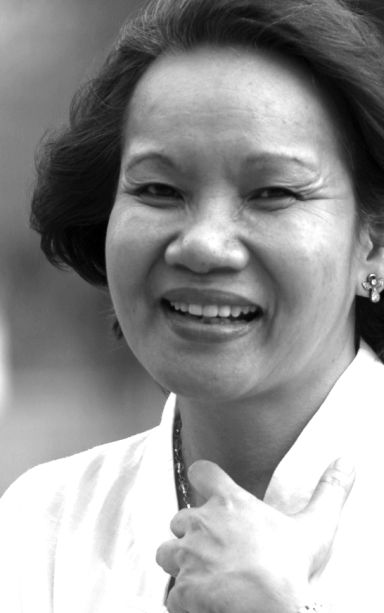
LOGARTA
The Cebu Women’s Network’s (CWN) lively discussion on water reminded me of my “water experiences.”
When I was studying in Diliman and had to do a paper on women and the environment, I found out that many of women’s environmental activities were related to water. Many groups of women organized to improve their access to water.
In fact, a missionary in Africa who set up a school realized that he needed to provide females a water source so that they would have time for school. They had been spending so much time going back and forth for water, they had no time for education.
I also recalled the brave women who opposed the building of the Chico Dam. They scared off the builders by removing their clothes as they confronted the builders.
The exchange made me remember my Bohol times with women in the Water and Sanitation Project. That was actually a big province-wide poverty alleviation.
The status of water and sanitation is a very critical poverty indicator. Sidlak Region VII Women Resource Center was there to look into the extent of women involvement in the project. There were actually many levels of women involvement in the project.
When workers were setting up the water system, the women prepared the meals for them. They also prepared the offering for the spirits as their permission was asked since the limited construction had been viewed as invasive to the territory of the spirits.
Other women especially those who were officials in the barangay dealt with government officials to assertively ask for the local counterpart and speed up the project.
The community formed a cooperative when water became available from faucets. Women managed this water distribution.
Women felt that they were favorably affected by the water system. They were very happy to see their children cleaner.
Then with water nearby, more time was available for them. In fact, one group was able to engage in an income-generating project — basket weaving.
They declared that with water they could enthusiastically invite relatives and friends to come home to Bohol because there was water at their convenience for many uses but especially for sanitation. They learned a lot within the project for they were given trainings on water conservation and water purification and others.
The CWN Kapihan talked about issues like availability of water, the safety of the water, saltiness and dirty appearance, and smell.
Architect Socorro Atega, leader of Cebu Uniting for Sustainable Water, explained that water from the sea was entering the ground because now water had been absorbed by it. This reminded me of how Mr. William Granert had explained this to my class in the early seventies.
Ms. Thelma Giminea-Chong and Atty. Sheryl Viñas among the vocal discussants. This may be because the attorney had assisted her community actually managing the setting up of pipe system for water access for her town.
All those make me want to share Tony Oposa’s thoughts from his treasure of a book “Shooting Stars and Dancing Fish: A Walk to the World We Want.”
As a water conservation measure, he suggests rain gardens! He reminds us that there is a law, Republic Act 6716 “requires the Department of Public Works and Highways to put up rainwater collectors.” But he has a better word for water collector, “rain garden.” He describes the steps in the making of a rain garden.
A hole needs to be dug. When it rains, excess water is to be directed to the hole or pond (in many houses, a downspout does this).
The rain garden “can be left open or covered with sand, rocks and soil. This can be planted with ornamentals or food plants.” He suggests “kangkong, kamunggay, and kamote.” A family can actually do this with women on the lead!
Disclaimer: The comments uploaded on this site do not necessarily represent or reflect the views of management and owner of Cebudailynews. We reserve the right to exclude comments that we deem to be inconsistent with our editorial standards.




